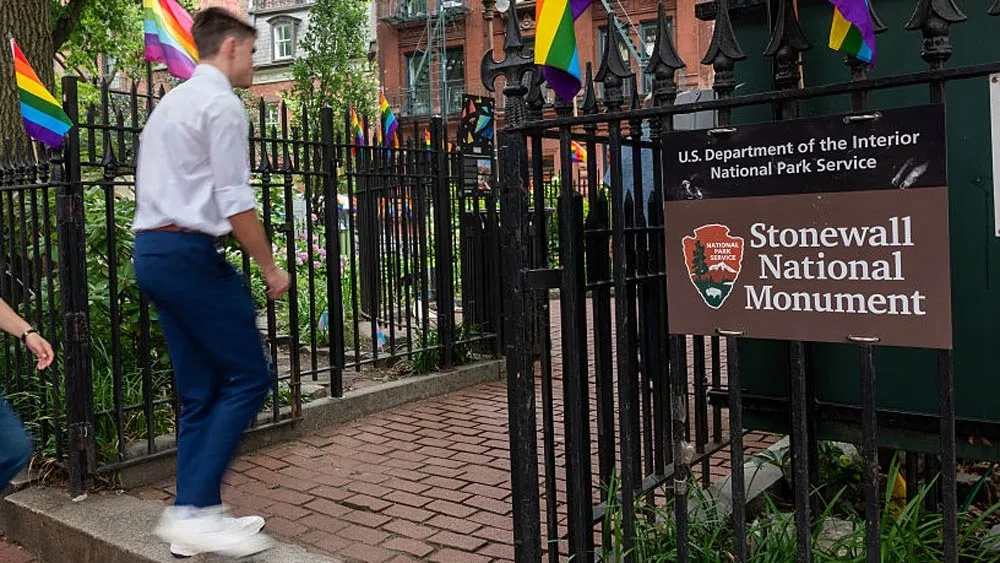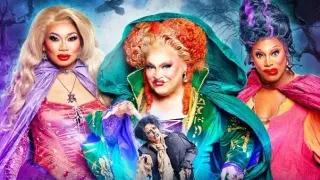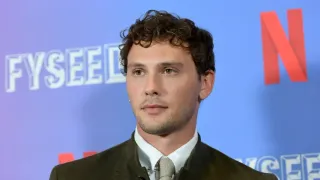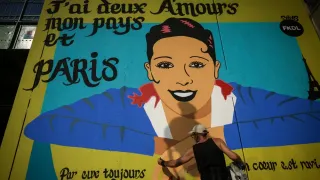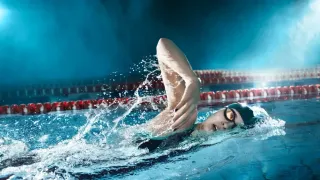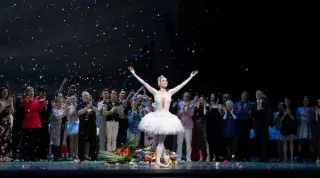April 29, 2019
Loud and Clear: What the Queer Deaf Community Wants You to Hear
Jill Gleeson READ TIME: 4 MIN.
They've been silent for too long – or, to be more precise, we haven't been listening.
According to the Deaf Queer Resource Center, a national nonprofit online resource and information center, there are an estimated 2.8 million Deaf queer people in the United States. It's a good-sized group, but one that's been historically overlooked and misunderstood not only by society as a whole but also by the non-deaf LGBTQ population, with what may be deadly consequences.
Opinions differ over how much progress has been made, but it's clear for true inclusion to occur there needs to be more support within the queer community for its Deaf members.
The Challenges
LGBTQ people who are Deaf (the D is capitalized to indicate the group shares a culture, rather than a disability) are a "tight-knit community... we keep in touch all of our lives," notes Rainbow Alliance of the Deaf (RAD) President Henry Carter. RAD, which is holding its biennial conference this July in Austin, is one of several national organizations devoted to advancing the interests of Deaf queer people.
It's a critical task, because the hearing LGBTQ community has not always been sensitive to the needs of its Deaf members, or even adequately communicated with them. Many advocates believe the failure of AIDS organizations to disseminate information effectively to Deaf people may have resulted in what is suspected to be disproportionately higher rates of HIV infection among the Deaf.
"As a deaf LGBTQ member I do find access to information about healthcare and relationships is very limited," agrees Joshua Castille, an actor and producer. "Agencies and centers should start to create videos in ASL for the community. I think that if they started creating ASL content, it would be a lot clearer... ASL is a different language. People think it is very similar to English but, in fact, it's derived from the French language. Also, we explain and discuss things through a visual perspective, not an auditory perspective, so reading directions written by a hearing person is something we have to decode."
ASL interpreters at queer events would help, too. "It is very common for any general LGBTQ event – concerts, drag races – not to have an interpreter," explains Arleta Meeker, a stage technician lead at Magic Mountain Six Flags. "We have to ask them to see if they're willing to provide an interpreter, but most of the time, they never do."
There has been some advancement in the media and entertainment landscape. Deaf transgender actor Chella Man was recently cast as bisexual superhero Jericho in Season Two of "Titans" streaming on DC Universe. Additionally, Deaf actor Russell Harvard is currently appearing as the Duke of Cornwall with Glenda Jackson in "King Lear" on Broadway.
The Support
Still, most members of the Deaf queer community interviewed for this article acknowledge that they find far greater support within the LGBTQ populace than outside of it. Castille says that in gay clubs hearing-abled people will have "full-on conversations with me via text/notes."
Meanwhile, Neil Sprouse, a freelance ASL consultant and teacher, experienced first-hand the willingness of queer spaces to adapt to the needs of its Deaf clients when he requested "better procedures" at the Los Angeles LGBT Center's medical facilities.
"At first, it was challenging because it was audio centered," Sprouse details. But as a result of his advocacy, the center adopted a more accessible system for its Deaf clients "where you check in on a tablet and it gives you instructions, to help the front desk to identify your needs better. There's still more to come, but I'm confident that the Center will get there as a truly inclusive and safe campus," he adds.
Of course, it's not only the LGBTQ community that must step up for the Deaf. As Amanda McDonough, LGBTQ ally and author of the book "Ready to be Heard: How I Lost My Hearing and Found My Voice," notes, "We have some great legislation that is supposed to grant us equal access to work, entertainment, information, and basic human needs. However, it is so rare that businesses, States, and individuals grant us the access we legally have a right to, even 29 years after the Americans with Disabilities Act was originally passed."
As Deaf queer people campaign for real equality, we must ensure their voices are heard – both outside, and within, the LGBTQ community.
Jill Gleeson is a travel and adventure journalist based in the Appalachians of Central Pennsylvania. Find her on Facebook and Twitter at @gopinkboots.
